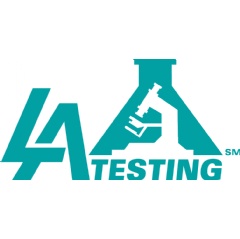College in Northern California Takes Steps to Treat Building Water Systems After the Discovery of Legionella
LA Testing offers laboratory services and sampling supplies to detect the bacteria that can cause Legionnaires’ disease and Pontiac fever.
A California daily newspaper recently published a report about the discovery of Legionella bacteria in water samples from several buildings in the college area. The campus buildings had not been occupied since COVID-19 closures went into effect last March. While no illnesses were reported, this is an example of how Legionella, which can cause both Legionnaires’ disease and Pontiac Fever, can become a concern in stagnant water systems in buildings that have been closed or barely used, due to the pandemic.
The Centers for Disease Control and Prevention (CDC) warns of potential risks in building water systems that have been stagnant or standing for weeks to months. The agency reports that when water is stagnant, hot water temperatures can decrease to the Legionella growth range, (77–108°F, 25–42°C). Stagnant water can also lead to low or undetectable levels of disinfectant, such as chlorine. Building operators are advised to ensure that their water systems are safe to use after a prolonged shutdown to minimize the risk of Legionnaires’ disease and other diseases associated with water.
The CDC has published the following eight steps to take before a business or building reopens following a prolonged closure:
- Develop a comprehensive water management program (WMP) for the water system and all devices that use water.
- Ensure the water heater is properly maintained and the temperature is correctly set.
- Flush the water system.
- Clean all decorative water features, such as fountains.
- Ensure hot tubs/spas are safe for use.
- Ensure cooling towers are clean and well-maintained.
- Ensure safety equipment including fire sprinkler systems, eye wash stations, and safety showers are clean and well-maintained.
- Maintain the water system.
“Testing the water in buildings is an important step to take to help ensure these systems do not pose a risk to building occupants,” said Joseph Frasca, Senior Vice President of Marketing at LA Testing. “In California, LA Testing provides water and other indoor environmental quality (IEQ) testing services and sampling supplies to detect Legionella and other exposure hazards. These include mold, sewer gas, asbestos, lead and radon to name just a few.”
To learn more about this or other building science, environmental, health and safety testing services and products, please visit www.LATesting.com, email info@LATesting.com or call (800) 755-1794. For access to IEQ test kits, visit www.EMSLTestKits.com.
About LA Testing
LA Testing is California’s leading laboratory for indoor air quality testing of asbestos, mold, lead, VOCs, formaldehyde, soot, char, ash and smoke damage, particulates and other chemicals. In addition, LA Testing offers a full range of air sampling and investigative equipment to professionals and the general public. LA Testing maintains an extensive list of accreditations including: : AIHA-LAP, LLC (AIHA-LAP, LLC EMLAP, AIHA-LAP, LLC IHLAP, AIHA-LAP, LLC ELLAP), CDC ELITE, NVLAP, State of California, State of Hawaii Department of Health and other states. LA Testing, along with the EMSL Analytical, Inc. network, has multiple laboratories throughout California including South Pasadena, Huntington Beach, San Leandro, San Diego and Ontario.
( Press Release Image: https://photos.webwire.com/prmedia/9645/272146/272146-1.png )
WebWireID272146
- Contact Information
- Joseph Frasca
- Senior Vice President of Marketing
- LA Testing
- (1) 856-303-2503
- Contact via E-mail
This news content may be integrated into any legitimate news gathering and publishing effort. Linking is permitted.
News Release Distribution and Press Release Distribution Services Provided by WebWire.
